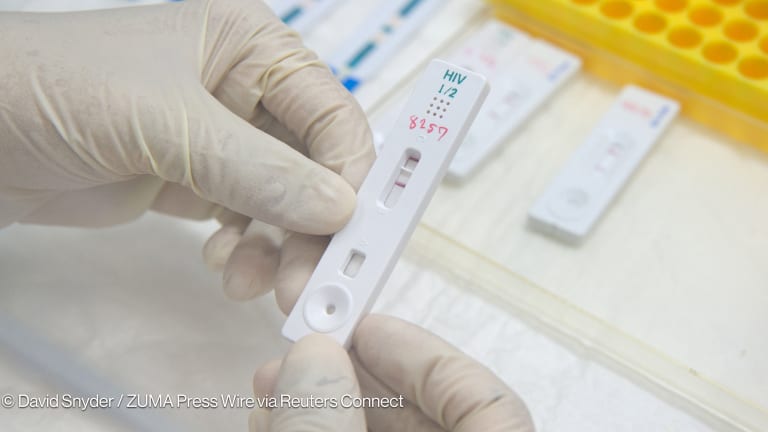
Co-written by Krishna Jafa and Roxana Rogers
In the coming days, the 19th International AIDS Conference will gather more than 25,000 global leaders who are committed to the fight against HIV, and who hold the power to shape the global funding and policy agendas to combat the epidemic. This is a moment of extraordinary scientific progress and potential, but the trajectory of the global response to AIDS will depend heavily on our ability to prevent new infections in the future.
Recent advances in HIV prevention provide dramatic proof that past investments in research and program development are paying off, and provides clear evidence that increased investments can reap tremendous rewards. The AIDS conference in Washington will serve as an urgent, science-driven call to action, challenging all stakeholders to harness their expertise, energy and resources to mount an effective and efficient response that can turn the tide on HIV.
Now, more than ever, we need to rearticulate our commitment to HIV prevention as an essential component to an effective response to HIV and AIDS. No single HIV prevention method offers complete protection against HIV. By offering a package of effective, evidence-based HIV interventions together, we are better positioned to counter the epidemic in a more comprehensive manner than would be possible with standalone interventions.
The strategy is working.
The rate of new HIV infections and AIDS-related deaths are at the lowest levels since the peak of the epidemic in 2001. The number of people living with HIV decreased by more than 25 percent between 2001 and 2009 in 33 countries around the world. But while the overall number of new infections is decreasing and access to treatment is increasing, there are still two new HIV infections for every one HIV-infected person placed on treatment.
While researchers and scientists work to develop an effective vaccine, global health experts are implementing programs that reflect a more holistic approach to HIV prevention. A “combination package” approach incorporates biomedical interventions and the promotion of healthier behaviors relevant to the local epidemic context. It also addresses structural factors — social, economic and political realities — that affect the ability of individuals and communities to adopt safer behaviors and access prevention services.
The challenge is in creating a package of prevention methods that is mutually reinforcing and tailored to individual, community and country-specific contexts.
Fortunately, we are at a point in the response where we now have a wide range of evidence-based interventions available, such as the voluntary medical male circumcision, harm reduction for people who inject drugs, male and female condoms, behavioral risk reduction, and the use of antiretrovirals for both prevention and treatment.
But there is still room for innovation.
Achieving an AIDS-free generation will also continue to depend on our ability to invest in new technologies that have the potential to reach more people. For example, recent scientific advances in the design and application of voluntary medical male circumcision devices could dramatically accelerate scale-up of the service by making the procedure faster, simpler and easily delivered by health workers who are not clinicians, while still ensuring safety and quality control.
The potential for impact is huge considering medical male circumcision is a one-time procedure that provides a lifelong benefit by reducing female-to-male transmission by up to 60 percent. Mathematical models indicate that increasing circumcision services to 80 percent coverage in five years could prevent nearly 3.6 million infections within 15 years. That translates to a net savings of US$16.5 billion due to averted treatment and care costs.
Ultimately, the delivery of these prevention packages relies heavily on collaboration among national governments, international donors, implementing partners and the communities we aim to serve. We also need a better understanding of costs for delivering combination packages for different populations and in different contexts. This week, the world’s political leaders will join leaders across all sectors to map the future direction of the global response to the AIDS epidemic. As the path is charted, continued donor support, increased investments by affected countries, visionary leadership by leaders in these countries, and an unshakeable commitment to the issue of prevention will be critical if we are to turn the tide.
Roxana Rogers is the director of USAID’s Office of HIV/AIDS and Krishna Jafa the director of sexual & reproductive health and TB at PSI.








